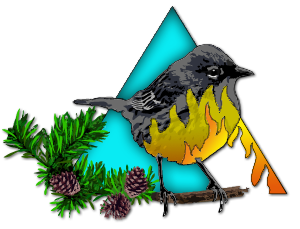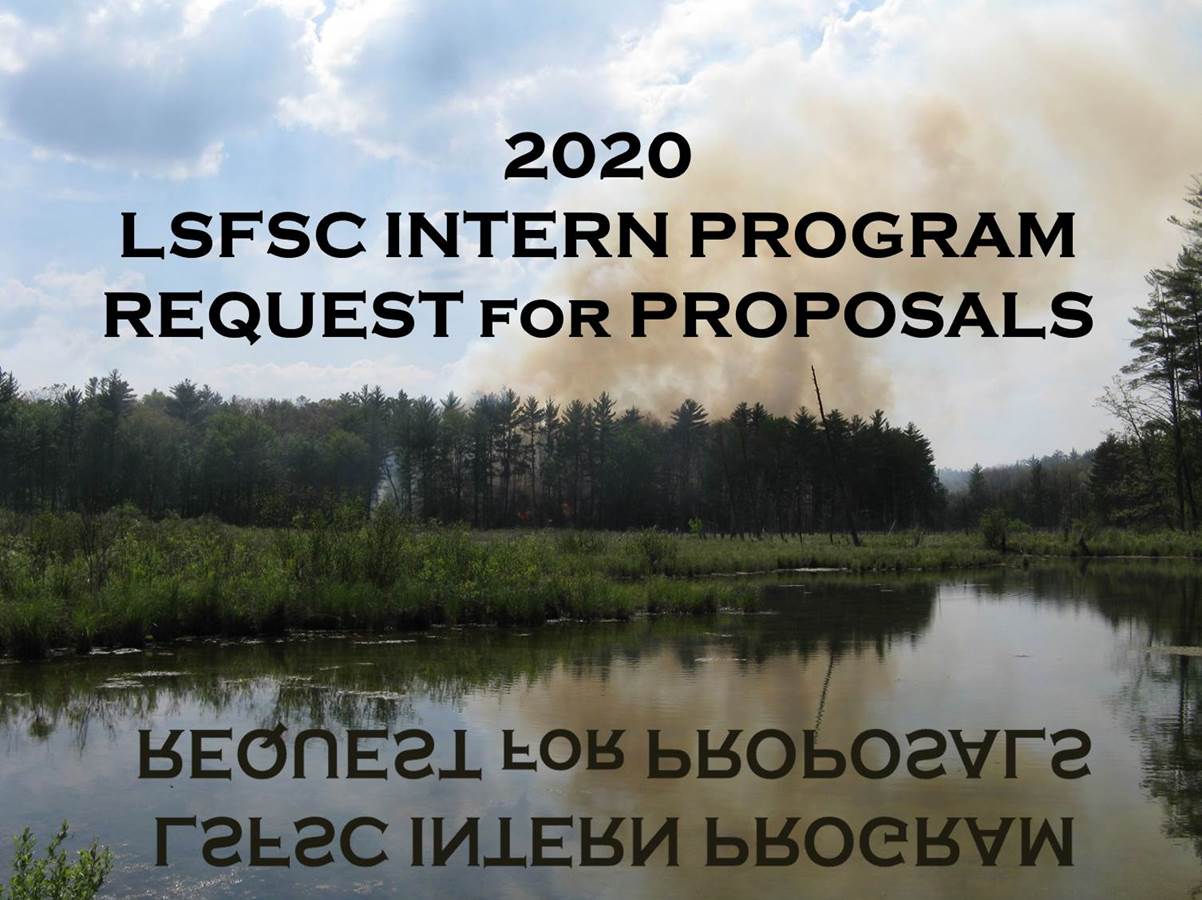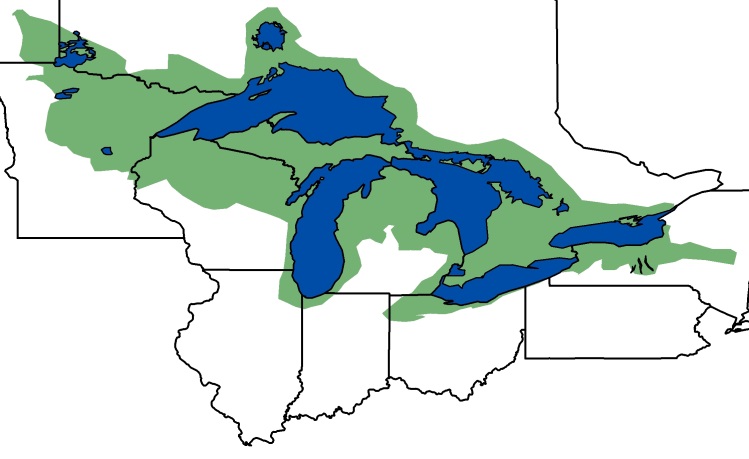Navigation

Upcoming Events
There are no events planned.
2020 LSFSC Internship Program

2020 Request for Proposals
The Lake States Fire Science Consortium (LSFSC) is committed to ensuring that the ‘best available science’ is available for planning and managing northern fire-dependent ecosystems of the Lake States. Where there are current gaps in the science, the goal of the LSFSC is to assist in filling those gaps so that science informs practice and vice-versa. Unfortunately, for many local fire management issues, there are few resources available to bring managers and scientists together to solve these important issues.

In an effort to enhance the opportunities for managers and scientists to work together, and to expose future professionals to opportunities of management and research collaborations, the LSFSC requests proposals to fund research internships that address relevant fire science and management issues associated with northern fire-dependent ecosystems of the Lake States region (See our Ecosystems page for a description of fire-dependent ecosystems that are the focus of the Lake States Fire Science Consortium). Proposals must be developed by joint manager-scientist teams (i.e. both must be listed as co-PIs and equally contribute to proposal development) and outline how the research internship will address a critical need that will help improve management of fire-dependent ecosystems locally. Preference will be given to partnerships that have not yet received funding from the program.
The LSFSC anticipates awarding several $4,000 research internship awards. It is expected that 100% of the funds should go to support the undergraduate internship experience (preferably for salary, though a limited amount of funds may be used to purchase materials and supplies needed to complete the project - funds should not be used as a supplement or summer salary for graduate students). All proposals must be submitted by 5:00 PM Eastern / 4:00 PM Central on Monday, December 9, 2019 by email to Jack McGowan-Stinski. There will be no exceptions to this closing date and time.
Proposals should be concise and no longer than four (4) pages in length. It is anticipated that the projects will last no longer than three to six months. Upon completion of the project a webinar presentation will be required (this webinar serves as the project’s final report). Proposals that do not meet all requirements will not be considered for funding (see Proposal Requirements below). Each proposal will be reviewed and its merits evaluated in the context of specific goals, nature of the collaborative arrangement, and potential for the collaborative relationship to continue into the future. See Review Criteria, and Conflict of Interest for Reviewers.
Proposal Requirements
Title:
Principal Investigator Team: Names and Affiliations of Research and Management Team
- Overview
- Clearly articulate the nature of the fire science and/or fire management issue, and how the scientist and manager team came together to address this issue
- Describe the significance of the issue locally and to the region
- Project justification and Expected benefits
- Articulate how the proposed internship will address one or each of the following:
- facilitate development of a new or emerging cooperative project between research and management in the area of fire ecology and/or application, or
- create a unique training experience for the intern that will enable that person to more easily work across traditional boundaries impeding integration of fire research and management in the Lake States region
- Articulate how the proposed internship will address one or each of the following:
- Plan of action
- Describe the specific research questions or objectives and methods
- Specifically describe how the undergraduate intern will help advance this plan
- Briefly describe how the undergraduate intern will integrate with both scientists and managers as part of the project
- Schedule
- Specifically outline deliverables and a time frame for their completion
- Future plans
- Describe how the relationship supported by this internship will contribute to an ongoing collaboration between the scientist and manager team beyond the funding period
- Budget
- Provide an itemized budget for the project
- Most funding should support the undergraduate intern; however, a small portion of the budget can be used to purchase materials and supplies that support the research project. Travel and indirect costs will not be supported
To view examples of the successful internship awards 2013 - 2019, please see our archived webpage and webinar recordings for December 19, 2013; December 18, 2014; November 19, 2015; November 17, 2016; January 25, 2018; and March 27, 2019. Please note that the required sections have been updated for this year’s announcement and prior proposals may not include each of the required sections. Please note that the required sections have been updated for this year’s announcement and prior proposals may not include each of the required sections.
Questions should be directed to:
Eric Toman, LSFSC Program Director (toman.10@osu.edu; 614-292-2265)
Jack McGowan-Stinski, LSFSC Program Manager (mcgowan-stinski.1@osu.edu; 989-287-1734)

.png)